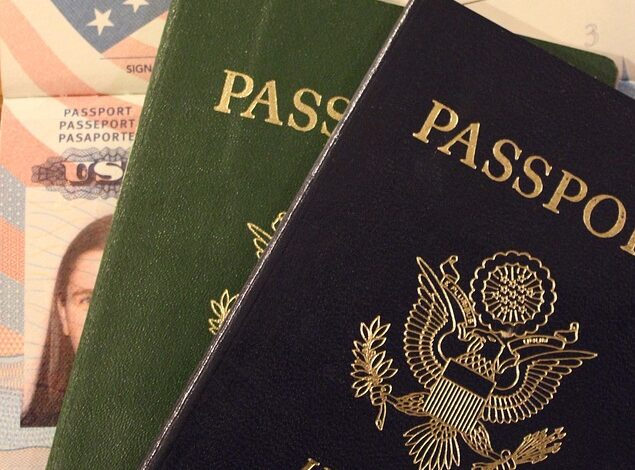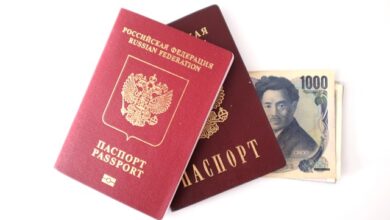France’s Asylum and Refugee Policies Explained

France has long been a destination for asylum seekers and refugees due to its historical commitment to human rights, democratic values, and international humanitarian principles. However, navigating France’s asylum and refugee policies can be complex, as they involve a combination of national laws, European Union regulations, and international conventions. In this article, we will break down France’s asylum system, the legal framework, the application process, and the challenges faced by asylum seekers and refugees.
1. Legal Framework Governing Asylum in France
France’s asylum policies are shaped by both domestic legislation and international agreements. Key components include:
A. International Conventions
- 1951 Geneva Convention: France is a signatory to the 1951 Refugee Convention, which defines who qualifies as a refugee and outlines their rights.
- European Union Directives: France adheres to EU directives such as the Common European Asylum System (CEAS), which harmonizes asylum procedures across member states.
B. National Legislation
- French Code on the Entry and Stay of Foreigners (CESEDA): This code governs immigration and asylum in France, detailing the rights and obligations of asylum seekers and refugees.
- Constitutional Protections: The French Constitution guarantees the right to seek asylum, reflecting the country’s commitment to protecting those fleeing persecution.
2. Who Qualifies for Asylum in France?
To qualify for asylum in France, an individual must demonstrate that they face persecution or serious harm in their home country based on:
- Race
- Religion
- Nationality
- Political opinion
- Membership in a particular social group
Additionally, individuals may apply for subsidiary protection if they do not meet the criteria for refugee status but still face risks such as torture, inhumane treatment, or threats to life.
3. The Asylum Application Process
The asylum application process in France involves several steps, each designed to assess the applicant’s eligibility for protection. Here’s an overview:
Step 1: Registration with OFPRA
- OFPRA (Office Français de Protection des Réfugiés et Apatrides): Asylum seekers must register their claim with OFPRA, the French agency responsible for reviewing asylum applications.
- Required Documents:
- Valid identification (if available)
- Passport or travel documents
- Proof of identity and nationality
- Supporting evidence of persecution (e.g., witness statements, medical reports)
Step 2: Preliminary Interview
- Applicants undergo a preliminary interview to explain their reasons for seeking asylum and provide details about their situation.
- Interpreters are provided if needed, and legal assistance is available through NGOs or pro bono lawyers.
Step 3: Decision by OFPRA
- OFPRA reviews the application and supporting evidence to determine whether the applicant qualifies for refugee status or subsidiary protection.
- Decisions are typically issued within six months, though delays can occur during peak periods.
Step 4: Appeals Process
- If OFPRA rejects the application, the applicant can appeal to the National Court for Asylum Rights (CNDA) within one month.
- The CNDA conducts a more in-depth review and may overturn OFPRA’s decision.
4. Rights and Support for Asylum Seekers
While awaiting a decision, asylum seekers in France are entitled to certain rights and support services:
A. Housing and Shelter
- Temporary Accommodation Centers (CADA): Managed by the state, these centers provide housing, food, and access to healthcare for asylum seekers.
- Emergency Shelters: For those unable to secure a spot in CADA, emergency shelters are available through local authorities and NGOs.
B. Financial Assistance
- Asylum seekers receive a modest monthly allowance (approximately €300–€400) to cover basic needs.
- Additional support may be available for families with children or individuals with disabilities.
C. Healthcare
- Asylum seekers have access to France’s universal healthcare system (Protection Universelle Maladie or PUMA) after three months of residency.
- Emergency medical care is available immediately upon arrival.
D. Work Permits
- Asylum seekers can apply for a work permit six months after submitting their application, provided their case remains unresolved.
- Employment opportunities vary depending on language skills, qualifications, and local labor market conditions.
5. Challenges Facing Asylum Seekers in France
Despite its progressive policies, France’s asylum system faces significant challenges:
A. Lengthy Processing Times
- Backlogs at OFPRA and CNDA often result in prolonged waiting periods, leaving applicants in limbo for months or even years.
B. Limited Resources
- Overcrowded accommodation centers and insufficient funding strain the ability of local authorities to meet the needs of asylum seekers.
C. Rising Anti-Immigration Sentiment
- Political debates over immigration have led to stricter enforcement measures, including increased deportations and reduced access to social services.
D. Integration Difficulties
- Language barriers, cultural differences, and discrimination make it challenging for refugees to integrate into French society.
6. Recent Developments in French Asylum Policy
In recent years, France has introduced reforms aimed at balancing humanitarian obligations with national security concerns. Key developments include:
A. Stricter Border Controls
- Enhanced border checks and cooperation with EU agencies like Frontex to prevent irregular migration.
B. Accelerated Procedures
- Introduction of fast-track processes for cases deemed “manifestly unfounded,” reducing the time available for appeals.
C. Focus on Integration
- Increased investment in language courses, vocational training, and employment programs to help refugees contribute to the economy.
D. Controversial Measures
- Proposals to expand detention centers and limit family reunification rights have sparked criticism from human rights organizations.
7. Success Stories and Positive Outcomes
Despite the challenges, many asylum seekers and refugees successfully rebuild their lives in France. Examples include:
- Entrepreneurs launching businesses that create jobs and stimulate local economies.
- Artists and academics contributing to France’s cultural and intellectual landscape.
- Community initiatives fostering cross-cultural understanding and solidarity.
8. How Can You Help?
If you’re interested in supporting asylum seekers and refugees in France, here are some ways to get involved:
- Volunteer with NGOs: Organizations like France Terre d’Asile , SOS Méditerranée , and La Cimade provide essential services and advocacy.
- Donate: Contribute to charities offering housing, legal aid, and educational resources.
- Raise Awareness: Educate others about the realities faced by asylum seekers and advocate for humane policies.



